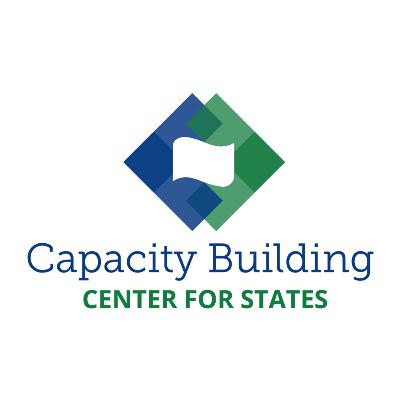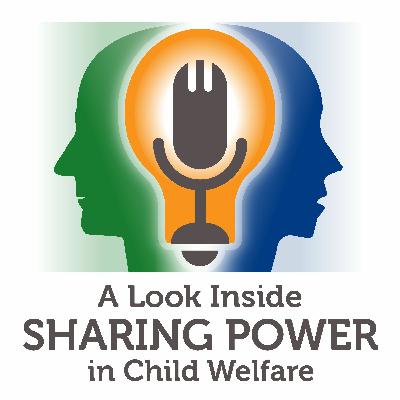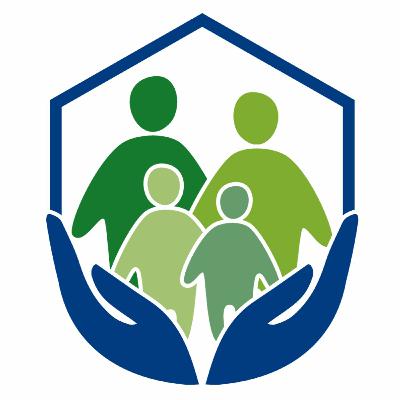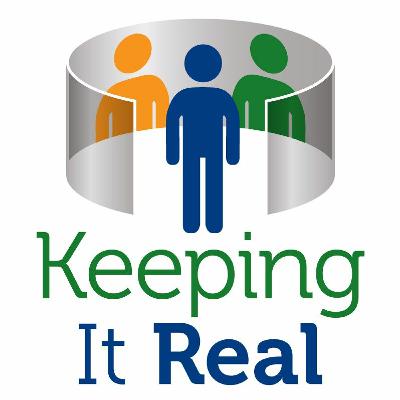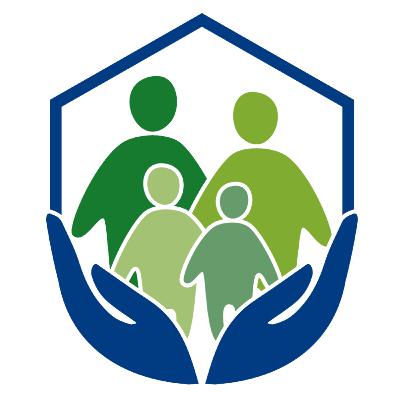Discover Capacity Building Center for States
Capacity Building Center for States

Capacity Building Center for States
Author: Capacity Building Center for States
Subscribed: 3Played: 6Subscribe
Share
© All rights reserved
Description
The Capacity Building Center for States supports public child welfare agencies in pursuing change and innovation and strengthening child welfare practice. The Center’s podcasts explore perspectives, strategies, and stories from the field about how agencies and their partners are striving to meet the needs of children, youth, and families in their communities. The Center is committed to helping states and territories keep families healthy, strong, and together so that children can thrive.
22 Episodes
Reverse
Hear participants share their perspectives, experiences, and expertise on learning how to honor differences while working in child welfare. The discussion centers on ways that honoring differences fosters a sense of belonging in teams and promotes psychological safety and benefits of maintaining and building healthy and supportive relationships.
Child welfare agency professionals and others can use this podcast as an opportunity to reflect on their own practices and learn concrete strategies to help build psychological safety and effectively honor differences while working on child welfare teams.
This podcast is available on Apple Podcasts, Spotify, Amazon Music, iHeartRadio, Pandora, and SoundCloud.
This podcast episode offers a deeper dive into the harmful effects of not having strong and supportive relationships, strategies for building trust, and coming to love ourselves. The participants make connections between navigating one’s their personal healing journeys and personal trauma, discuss how to foster a sense of psychological safety while working toward personal healing, and consider ways to build healthy and supportive relationships as part of a healing process.
Child welfare professionals and others can use this podcast as an opportunity to learn concrete strategies for building a psychologically safe space that welcomes personal healing and growth and reflect on their own experiences.
This podcast is available on Apple Podcasts, Spotify, Amazon Music, iHeartRadio, Pandora, and SoundCloud
The discussion in this episode includes topics such as reconciling with people in your past, building new relationships, and working toward personal healing and mental health while working in and out of child welfare. Participants make connections between navigating one’s own healing journey and personal trauma and building supportive relationships as a part of the healing process.
Child welfare professionals and others can use this podcast as an opportunity to learn concrete strategies on better practices toward building a psychologically safety space that welcomes personal healing and growth and reflects on their own experiences.
This podcast is available on Apple Podcasts, Spotify, Amazon Music, iHeartRadio, Pandora, and SoundCloud.
Join teams from Oklahoma and Indiana as they share updates in their FFPSA Title IV-E Prevention Program implementation journeys. In Episode 2, speakers share strategies for engaging young people and families in prevention program implementation, using collaborative approaches to systemic challenges, and sustaining prevention in the face of competing priorities.
https://capacity.childwelfare.gov/states/topics/ffpsa
Join teams from Oklahoma and Indiana as they share updates in their FFPSA Title IV-E Prevention Program implementation journeys. In Episode 1, speakers share implementation strategies, including cultural considerations for evidence-based programs and approaches to reduce disparities. They explore workforce challenges and offer advice for jurisdictions facing similar challenges.
https://capacity.childwelfare.gov/states/topics/ffpsa
Listen to Tony Parsons (Center for States Young Adult Consultant) and Angela Braxton (Center for States Family Consultant) as they discuss the importance of developing authentic partnerships, engaging families in and out of child welfare, and maintaining relationships with child welfare agencies.
With this podcast, child welfare professionals and partners can learn more about the importance of family engagement and can help teams build a shared understanding of foundational FALA concepts.
Learn about the actions and attitudes that make parents feel comfortable to sit at the table, contribute, and feel respected and how that engagement can really change a parent’s life. In Episode 4, co-host Jamie Brooks has a conversation about authentic engagement of parents with Mark Rolon, one of New Hampshire’s family leaders in child welfare, and Geraldo Pilarski, the administrator of New Hampshire’s Parent Partner Program. Share and discuss this episode with others to explore how authentic engagement of people with lived experience can benefit parents, agencies, and improve outcomes for families, children, and youth.
This podcast was created by the Capacity Building Center for States under Contract No. HHSP233201500071I, funded by the Children’s Bureau, Administration for Children and Families, U.S. Department of Health and Human Services. The opinions expressed by individuals quoted do not necessarily reflect the views and policies of the Children’s Bureau.
Learn about building trust intentionally by listening to and considering the differing and individual needs of parents, foster families, kinship families, and youth. Co-host Tony Parsons talks about sharing power and the slow process of system change with Judy Tudor, Assistant Director of Clark County Department of Children and Family Services, and Madison Sandoval-Lunn, the Center’s Family and Youth Empowerment Program Area Manager. This is the second part of their hour-long conversation started in Episode 2. Share and discuss these episodes with others to explore how deeper engagement of people with lived experience can improve child welfare policy and practice for better family, children, and youth outcomes.
This podcast was created by the Capacity Building Center for States under Contract No. HHSP233201500071I, funded by the Children’s Bureau, Administration for Children and Families, U.S. Department of Health and Human Services. The opinions expressed by individuals quoted do not necessarily reflect the views and policies of the Children’s Bureau.
Learn how welcoming change, listening to people with lived experience, and sharing the workload can help to develop and empower young leaders and improve the child welfare system. Co-host Tony Parsons talks with Judy Tudor, Assistant Director of Clark County Department of Children and Family Services, and Madison Sandoval-Lunn, the Center’s Family and Youth Empowerment Program Area Manager about sharing power by recognizing and acknowledging one’s own power and the power in others, and how they have done it throughout their careers. This is the first part of their hour-long conversation continued in Episode 3. Share and discuss these episodes with others to explore how deeper engagement of people with lived experience can improve child welfare policy and practice for better family, children, and youth outcomes.
This podcast was created by the Capacity Building Center for States under Contract No. HHSP233201500071I, funded by the Children’s Bureau, Administration for Children and Families, U.S. Department of Health and Human Services. The opinions expressed by individuals quoted do not necessarily reflect the views and policies of the Children’s Bureau.
This initial episode introduces the series cohosts, lived experience consultants for the Capacity Building Center for States Tony Parsons and Jamie Brooks, as they talk about their own experiences, their hopes for the series, and the meaning behind commonly used terms like “lived experience,” “lived expertise,” and “sharing power.” Discuss this episode with others to come to a common understanding of the concepts essential to sharing power in child welfare.
This podcast was created by the Capacity Building Center for States under Contract No. HHSP233201500071I, funded by the Children’s Bureau, Administration for Children and Families, U.S. Department of Health and Human Services. The opinions expressed by individuals quoted do not necessarily reflect the views and policies of the Children’s Bureau.
Listen to an attorney and a parent ally, both partners with Washington state’s child welfare system, explain how parent partner programs are an essential part of prevention services in this short podcast.
Listen to Indiana’s child welfare partners talk about what is making the shift to an upstream approach to prevention services possible in this short podcast.
Listen to advice from people with real experience standing up the Positive Parenting Program (Triple P) in North Carolina about including family voice early in the planning process, discussing non-negotiables, and enhancing communication between partners. Leaders and managers can engage staff, private providers, funders, and other system partners with this short podcast focusing on collaboration. Once engaged, take a deeper dive together into the more in depth Leading the Charge for Transformation Recorded Webinar to open dialogue about co-creating a vision for a holistic, prevention-oriented system.
Listen to advice from people with real experience standing up the Positive Parenting Program (Triple P) in North Carolina about including family voice early in the planning process, discussing non-negotiables, and enhancing communication between partners. Leaders and managers can engage staff, private providers, funders, and other system partners with this short podcast focusing on collaboration. Once engaged, take a deeper dive together into the more in depth Leading the Charge for Transformation Recorded Webinar to open dialogue about co-creating a vision for a holistic, prevention-oriented system.
In episode 7 of the podcast series How We Partner With the Community to Improve Service Options, a judge and a child welfare agency leader discuss the challenges, achievements, and strategies of the Tompkins County Family Treatment Court. This longstanding collaboration between the child welfare, substance use treatment, and judicial systems has been steadily growing its Family Treatment Court Team and improving outcomes for families since 2001.
Highlights evaluation results of the University of Illinois Child Protection Training Academy simulation training. Evaluator Ted Cross provides a summary of key findings related to child welfare investigators’ confidence in the ability to do their jobs and worker retention. This audio clip is part of a series of resources that can help child welfare training directors, design and implementation teams, and others involved in program improvement and implementation understand the benefits of and key considerations for developing and running a simulation training program.
In episode 6 of the podcast series How We Partner With the Community to Improve Service Options, child welfare agency leaders in the District of Columbia, service providers, partners in community collaboratives, and sister agencies talk about how they coordinate service planning and delivery, are culturally responsive to the community, and provide seamless services to families. Their collective focus on primary prevention “front porch and front yard” services in the community helps keep families strong and intact and narrows the agency’s “front door.”
In this introduction to the podcast series How We Partner With the Community to Improve Service Options, agency leaders talk about the changing culture of their organizations. Leaders from Kentucky discuss their Child Welfare Transformation initiative, three transformational goals, and culture of safety. Leaders from the District of Columbia discuss their Four Pillars framework and prevention services planning.
In episode 2 of the podcast series How We Partner With the Community to Improve Service Options, leaders from the District of Columbia child welfare agency and a community collaborative organization discuss their longstanding partnership. The commissioner for Kentucky's child welfare agency describes the agency’s strategic communication plan and considers the role of the agency as part of the larger child welfare system.
Episode 3 of the podcast series How We Partner With the Community to Improve Service Options explores the efforts agencies, community collaborative organizations, and others are making to bring families, youth, and communities to the table as they strive to improve the child welfare system. In Kentucky, youth from Voices of the Commonwealth communicate the needs and issues of children in foster care to the state legislature, resource partners, and child welfare agency staff. In the District of Columbia, community collaborative organizations connect regularly with families to find out what's working and identify gaps.


